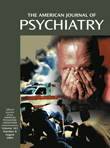Principles of Experimental Psychopathology: Essays in Honor of Brendan A. Maher
This book examines, in a broadly defined way, the work of Brendan A. Maher, Ph.D., the Edward C. Henderson Professor of the Psychology of Personality, Department of Psychology, Harvard University. For those unfamiliar with Dr. Maher’s work, he is a primary architect of experimental psychopathology, a leading scholar in schizophrenia research, a teacher and mentor of many, and an academic statesman-at-large. The book is a Festschrift, referring directly to Brendan Maher’s methodological contributions to the study of mental illness and alluding to his landmark book on the topic (1), supported in part by the American Psychological Association Science Conference and the Decade of the Brain series.
The book is composed of chapters written by prominent scholars and researchers who have had the opportunity to work with Dr. Maher as colleagues, collaborators, and former students, as well as a chapter by Dr. Maher himself. Early on in his career, Dr. Maher established that, despite the challenges encountered in working in the field of psychopathology, methodological concerns applied to this field were not inherently different from the principles already worked out in the experimental laboratory. By continuing to focus on the questions of how one conducts a particular study and how to measure the phenomenon of interest, empirical study of issues in experimental psychopathology has become more methodologically rigorous and scientifically sound. The contributing authors not only explain how Dr. Maher’s work and ideas have contributed to the development of their own research efforts but also describe the broader impact he has had on those who have had the privilege of knowing him personally.
The volume is divided into five parts. The first part is written by Dr. Maher himself and contains a discussion of his views on delusional thought and the methodological approach he has taken to study these beliefs. Many of his methodological principles are described; these lay the groundwork for the other parts of the book. In the second section, a variety of scholars who have worked with Dr. Maher describe their work in schizophrenia. Topics include genetics (Gottesman and Reilly), motor dysfunction (Manschreck), neuromotor abnormalities (Dworkin et al.), spatial working memory deficits (Park and Lee), and models of vocational support (Blyler) in the emergence and development of schizophrenia.
Part 3 includes chapters with distinct methodological foci, with an emphasis on the methodology of interest within the context of schizophrenia research. These include chapters on the study of neuropsychological function (Strauss and Summerfelt), signal-detection-based assessment of somatosensory dysfunction (Lenzenweger et al.), and pain insensitivity (Hooley and Chung). Part 4 describes methodological and technological advances in the study of psychopathology, including reductivism (Holzman), event-related brain potentials (Deldin et al.), magnetic resonance methods (Yurgelun-Todd and Gruber), and functional neuroimaging of working memory (Manoach). Part 5 concludes with three chapters related to temperament (one by Kagan and one by Fowles) and cognition (McNally) in experimental psychopathology and developmental psychological sciences.
In the introduction, the editors state,
Thirty-five years ago, Maher urged psychopathologists to bring psychopathology into the laboratory with the hope that the power of experimental methods…might help researchers resolve more clearly a variety of fundamental processes in the study of mental illness. In so doing, his vision helped transform the manner in which psychopathology research was carried out. It continues to implicitly guide the manner in which experimental psychopathology research is conducted, regardless of one’s specific focus. We believe that the chapters in this volume celebrate the spirit and implementation of that seminal vision. (p. 6)
They do! In addition, they celebrate the spirit and influence of a wonderful man, with warm tributes and charming and amusing anecdotes related to both professional and personal development of those with whom he has come in contact. The editors should be very proud—this Festschrift accomplishes its goal with a perfect blend of autobiography, science, and real-world implications.
1. Maher B: Principles of Psychopathology: An Experimental Approach. New York, McGraw-Hill, 1968Google Scholar



